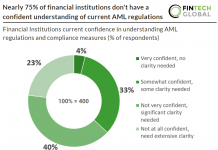Combating money laundering and fraud is a tall order and while AI technology is being utilised to improve the battle, leveraging name science is key to unlocking the technology’s full potential.
Quantifind, a data science innovator helping firms with compliance, has issued a new whitepaper. An Introduction to Name Science and Its Role in Fighting Financial Crimes explores how name science can be used to help firms improve the potential of AI-powered AML and anti-fraud automation by identifying names from disparate data sets.
A bank’s process for preventing global money laundering and fraud is largely down to two principles, monitoring and analysing transactions, and investigating the people or organisations behind them. While machine learning is improving this, context contributed by external data is crucial to AML and is responsible for a large portion of red flags that initiate investigations, the whitepaper claims.
Quantifind claims that interpreting this content consumes a lot of manual labour, leading to alert backlogs, delayed onboardings and surveillance and causes costs to grow by 20% annually.
AI can help to automate this, but to do this effectively it needs to be able to identify the correct name in disparate stores of public-domain data so it can find relevant signals. The whitepaper said, “Foundational to this process is the emerging field of “name science,” a subspecialty of data science that is essential to achieving the accuracy needed for true automation.”
An investigation requires supporting information is correctly attributed and is relevant. By using data science, it is possible to automate many aspects of these investigations and free up time for staff to focus on high-risk cases.
You can download the full whitepaper for free here.
Copyright © 2021 FinTech Global











